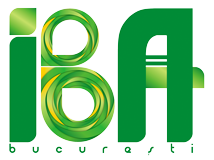On October 9, a new essential European regulation will enter into force, tightening the permissible limits for nitrites and nitrates in processed meat products — a decision with major implications for the food industry and public health. (https://affidiajournal.com)
Why the rules are changing
Nitrites and nitrates have long been used as additives in the meat industry for their preservative properties: they prevent the growth of dangerous bacteria (including Clostridium botulinum) and help maintain the characteristic color and flavor of cured meats.
However, recent studies indicate a potential increased risk of cancer associated with a high intake of these substances. For this reason, the European Union has decided to revise the tolerance levels for nitrites and nitrates in processed foods.
What EU Regulation 2023/2108 stipulates
The new regulation, called EU Regulation 2023/2108, amends the previous provisions of Regulation (EC) No. 1333/2008 by setting stricter limits for nitrite and nitrate content.
The main changes include:
• The maximum nitrite limit for ready-to-eat processed meat decreases from 100 mg/kg to 65 mg/kg.
• For non-heat-treated meat (i.e., meat that is not cooked), the limit is reduced from 150 mg/kg to 80 mg/kg.
• Sterilized products now have a new threshold of 55 mg/kg, down from the previous 100 mg/kg.
Impact on producers and consumers
Meat producers will need to quickly adapt their recipes, manufacturing processes, and technologies to comply with the new limits without compromising the microbiological safety of their products.
Importantly, products already manufactured and compliant with the previous regulation may continue to be marketed, giving producers some time to gradually adjust.
Call to action
With the implementation deadline fast approaching, stakeholders in the sector (processors, health authorities, laboratories) are urged to promptly review and update their internal processes and control schemes. Compliance with the new rules is not only a legal obligation but also an important step toward protecting consumer health.
Source AFIIDIA JOURNAL.

